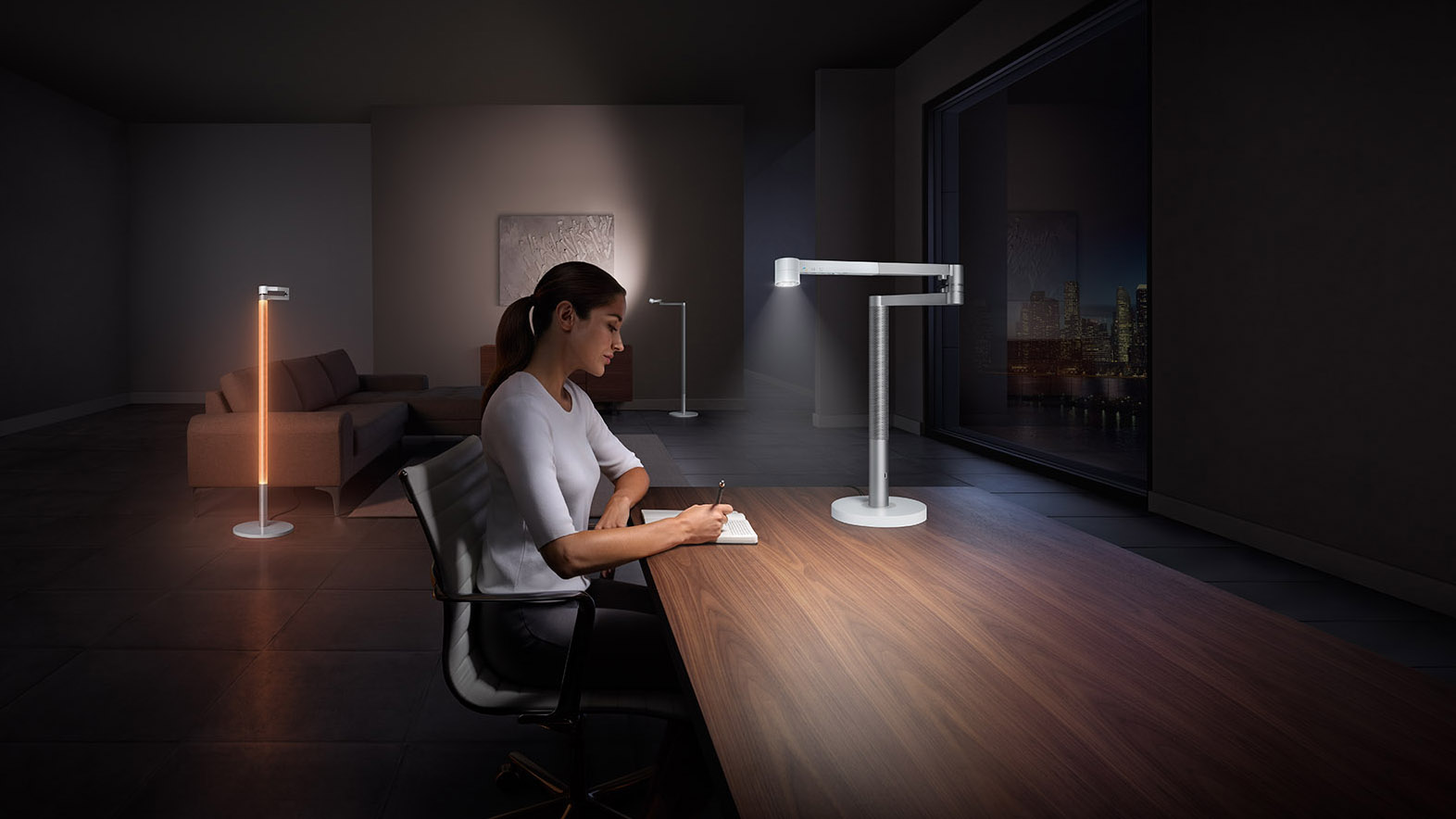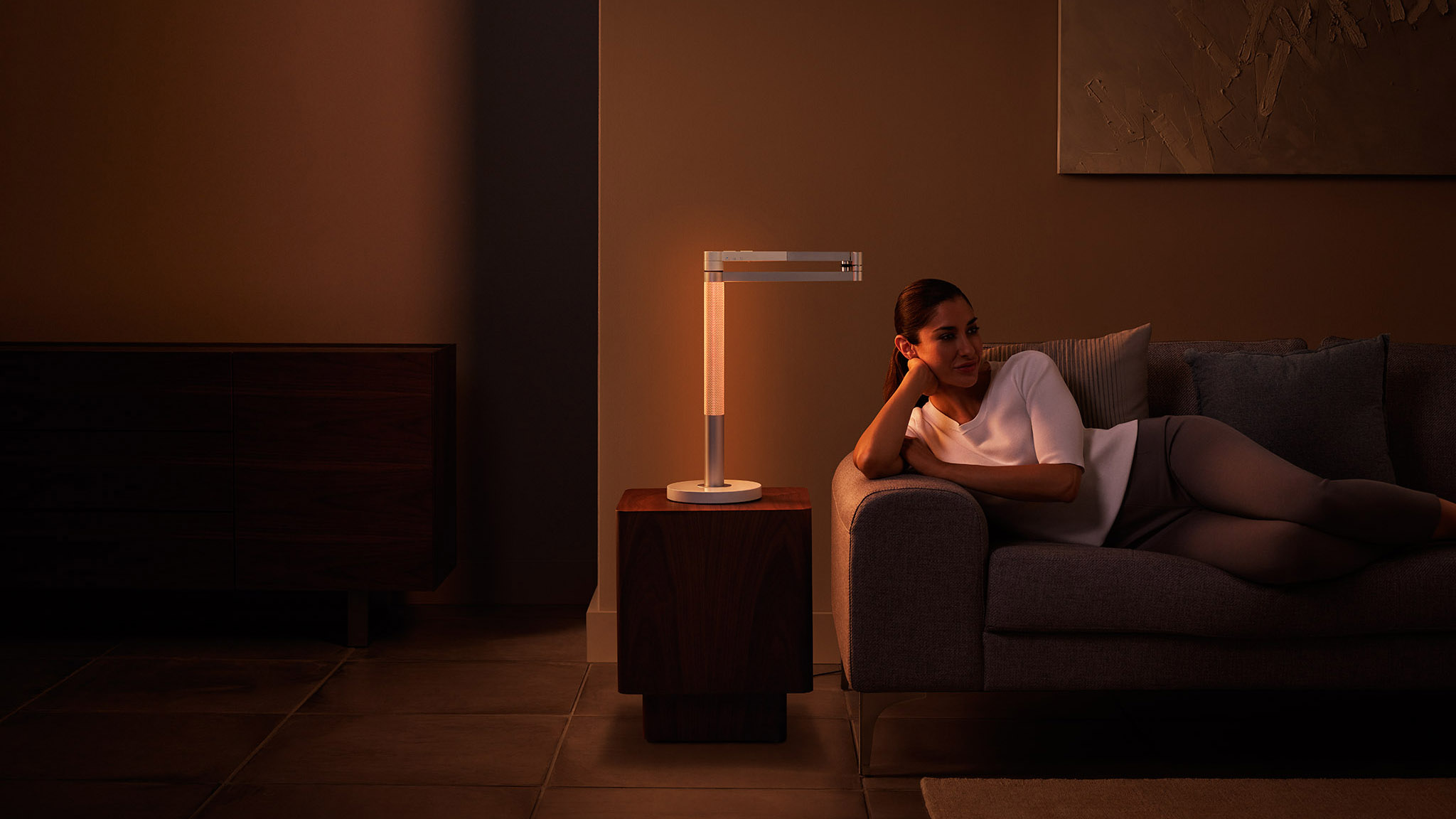Dyson's new smart lamp could light your way for 60 years
Light up your life

Dyson has revealed its latest smart light, which uses your age and calculates local daylight to preserve your eyes – and it could last up to 60 years, according to the company.
Building on the success of the original Dyson Lightcycle, the new Dyson Lightcycle Morph, "intelligently adjusts the light it emits depending on the user’s task, age and local daylight," all of which can be personalized via the Dyson Link app.
- Read our original Dyson Lightcycle review
- The best smart lights you can buy in 2020
- Check out our Philips Hue review
With the ability to rotate 360 degrees, the new smart light can be used as an indirect light to bounce light off your walls, floors, and ceilings, a task light to focus on intricate tasks, and a feature light to highlight your decor.
The stem can also emit a soft orange glow, which means you can use the Lightcycle Morph as an ambient light when you wind down in the evening.
Long live the light
According to Dyson, the Lightcycle Morph could last you decades, thanks to company's heat pipe technology, which "draws heat away from the LEDs to provide a non-stop, energy-free cooling cycle, maintaining light quality for 60 years with light quality not diminishing over time."
That 60-year lifespan is based an estimation of eight hours of use per day, although Dyson notes that "real-life results may vary".
Chief engineer, Jake Dyson explains that, “when trying to recreate the characteristics of daylight, light quality is vital. So we developed a way to protect it for the long term.”
Get daily insight, inspiration and deals in your inbox
Sign up for breaking news, reviews, opinion, top tech deals, and more.
As well as looking good, high quality light could be a good way to stave off tired eyes when you're focussing on intricate tasks like writing, sewing, or DIY projects.
Dyson claims that the LightCycle Morph produces a "uniform distribution of high quality, powerful light, while achieving a low flicker score at full brightness". According to the brand,"low light, flicker and glare can cause eye strain and visual fatigue".
The light is also well-suited for tasks like painting and makeup application, thanks to a Precision mode, which displays colors "very close to daylight". Thanks to a built-in ambient light sensor, the light output levels are adjusted automatically if the lamp detects a sudden change in the background light – this should keep your space at a constant brightness level, ideal if you're trying to concentrate on a tricky task.

You can also adjust the Lightcycle Morph based on your age; Dyson says that a 65-year old "needs up to four times more light than a 20-year old", and entering your age into the Dyson Link app will brighten the lamp accordingly.
You'll find a number of preset modes within the app, including Study, Relax, Precision, Boost, Wake-up, Sleep, and Away, while a manual control lets you dim and adjust the color temperature of the light by sliding your finger up and down.
The Away setting is particularly interesting; this mode forces the light to switch on and off at set times to imitate human presence, which means you can use it as a security light to deter would-be intruders when you're away from home.
Want to make your own presets? It’s possible to pre-program and assign names for up to 20 different settings, so you can really customize the light to your specific needs.
Other mod-cons include a USB-C charger for topping up your phone, and an infrared movement sensor that switches the light on when someone is near, and off when no movement has been detected for five minutes, helping to save energy.
Like its predecessor, the Dyson Lightcycle, the new Lightcyle Morph costs £499.99 for the desk-sized version, and £649.99 for the floor-standing lamp. That's no small price to pay for a smart light, but if it does last you 60 years, it could be a worthwhile investment.
- Need a new vacuum cleaner? Check out our Dyson V11 review
Olivia was previously TechRadar's Senior Editor - Home Entertainment, covering everything from headphones to TVs. Based in London, she's a popular music graduate who worked in the music industry before finding her calling in journalism. She's previously been interviewed on BBC Radio 5 Live on the subject of multi-room audio, chaired panel discussions on diversity in music festival lineups, and her bylines include T3, Stereoboard, What to Watch, Top Ten Reviews, Creative Bloq, and Croco Magazine. Olivia now has a career in PR.
